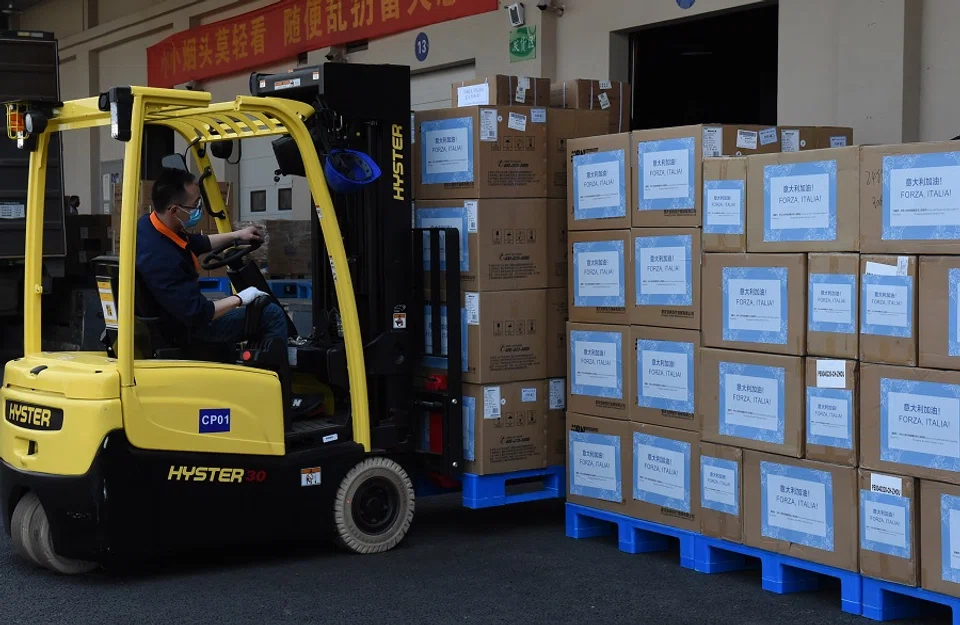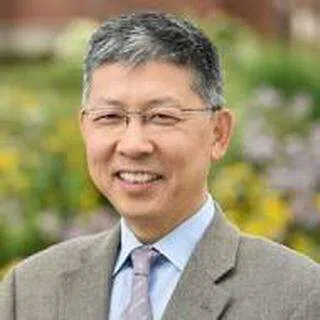Informal diplomacy: The way to solidarity in a global crisis
Away from the bright lights of formal diplomacy where barbs traded between governments are par for the course, the simple yet effective channel of people-to-people diplomacy is helping to thaw the ice around some hardened positions.

How "ping pong diplomacy" helped break the ice in US-China relations in the early 1970s is a household story. Indeed, when formal relations are strained or non-existent between two nations, informal diplomacy can help to ease tensions or bridge the gap.
People-to-people diplomacy, a form of informal diplomacy, has manifested itself again in the current global combat against the novel coronavirus. During the peak of China's efforts to contain the outbreak, people from many countries expressed sympathy and support by donating medical supplies to China. In return, Chinese businesses and individuals have sent their donations to various countries hit by the virus now. Such informal diplomacy is often conducted quietly among people, with its unique features different from formal diplomacy conducted by national leaders and diplomats at the governmental level.
...the Japanese people's thoughtful (and poetic) gesture at least helps reduce animosity between the two countries.
On the boxes of relief supplies they sent to Wuhan, China, Japanese donors posted a line from a Buddhist hymn that was sewn into the robes gifted by a Japanese prince to Chinese monks: 山川异域,风月同天, roughly translated as "Rivers low, mountains high; the same moon in the sky" or simply "Lands apart, sky shared". Many Chinese were deeply touched and felt that Japan, China's arch-enemy in history, was a true friend in need.
This has apparently kicked off a new trend in diplomacy, which demonstrates how culture can generate goodwill in international relations. For example, donations to China from South Korea also contained classic Chinese poems on the boxes.
No one expects that all the historical disputes between Japan and China will disappear as a result, but the Japanese people's thoughtful (and poetic) gesture at least helps reduce animosity between the two countries.
When asked about China's reactions to such neighbourly affections, Chinese Foreign Ministry spokesman Geng Shuang said the phrase "投我以木桃,报之以琼瑶 (She throws me a flower, I return to her a jade)", which is a line from the ancient Book of Songs (诗经), suggesting that China will return the favour.

Indeed, the Chinese people reciprocated by sending masks and protective suits to Japan and South Korea a few weeks later as the coronavirus hit these neighbours. Alibaba co-founder Jack Ma shipped one million masks to Japan, with "青山一道, 风雨同担 (We will weather the storm together)" on the boxes.
When the coronavirus spread to Europe and North America, the Chinese started to support friends far away. Jack Ma used the familiar American expression "United we stand, divided we fall" when he donated 500,000 virus test kits and one million masks to the US. The Alibaba Foundation also donated two million protective masks for distribution across Europe.
While presidents, prime ministers, and their cabinets deal with "high politics," such as making alliances, signing treaties and conducting other businesses related to national security, they usually delegate "low politics" of social and cultural matters to bureaucratic administrators.
When Italy's European Union partners initially turned a deaf ear to its pleas for help, China dispatched a group of medical professionals and delivered a planeload of medical supplies, including masks and respirators to Italy. On the shipped crates of supplies to Italy from Chinese technology company Xiaomi, the Chinese wrote this classic verse by ancient Roman philosopher Seneca: "We are waves of the same sea, leaves of the same tree, flowers of the same garden". On the boxes of supplies to France, the Chinese used "Unis nous vaincrons" (United we will win) by Victor Hugo. It takes a lot to sympathise with others' plight; it is even more meaningful when you do it in their language with an artistic flair.

International relations scholars used to distinguish the so-called "high politics" from "low politics". High politics concerns a state's survival and includes issues involving the military, national security, and formal diplomacy. Issues that are not vital to a state's survival are deemed low politics, which generally includes economic and social concerns, along with most domestic issues.
The coronavirus also reminds us that in this interdependent world we face common challenges that require cooperation at both governmental and non-governmental levels.
Classical realism only views high politics as relevant and completely rejects low politics. Liberalism, on the other hand, considers low politics as fundamental in an interdependent world without rejecting high politics. Economic issues were considered low politics during the Cold War, but now they have obviously been upgraded to be high politics since economic competition between states has become a major feature of the contemporary world.
Low politics matters are rarely handled directly by national leaders. While presidents, prime ministers, and their cabinets deal with high politics such as making alliances, signing treaties and conducting other businesses related to national security, they usually delegate low politics of social and cultural matters to bureaucratic administrators.
Too often, government officials focus on security, military, or trade, in international relations while downplaying or utterly ignoring the other, softer dimensions of international politics. National leaders tend to defend their own national interests, highlighting national differences without paying attention to common interests among nations.
The current wave of informal diplomacy during the global effort to defeat the coronavirus reminds us that as human beings, we share much in common - we all enjoy the beauty of nature, we desire a peaceful and healthy life, and we treasure family and friendship. The coronavirus also reminds us that in this interdependent world we face common challenges that require cooperation at both governmental and non-governmental levels.
In fact, New York governor Andrew Cuomo has already publicly thanked Huawei for its donation of N95 masks, isolation gowns, medical goggles and gloves to residents of New York.
Chinese businesses like Huawei and Alibaba have been actively participating in informal diplomacy, which also provides a great opportunity for them to share their social responsibilities. At the start of China's reform era, Deng Xiaoping said, "To get rich is glorious." For a long time, Chinese business people have focused on making money, without much sense of the concept "corporate social responsibility". Now the Chinese businesses are increasingly aware of their social responsibilities as members of their communities, both local and global.

Philanthropy is obviously an area that they are practising now. It is not surprising that many businesses in China, like elsewhere, have been involved in donations of masks, test kits and other medical supplies to countries suffering from the coronavirus pandemic. Such low-key people-to-people exchanges undoubtedly help generate goodwill and promote friendship between countries.
Of course, for businesses, this is also a public relations opportunity. For example, Huawei can hopefully project itself as a responsible and caring company and improve its international image that has been severely tarnished by the US government's accusation of its linkage to the Chinese military. In fact, New York governor Andrew Cuomo has already publicly thanked Huawei for its donation of N95 masks, isolation gowns, medical goggles and gloves to residents of New York.
"If you want to go fast, go alone; if you want to go far, go together," says an African proverb. As countries around the world continue to fight against Covid-19, one hopes that people in different parts of the world will join hands through informal diplomacy to tackle the common challenge. This is not the time to point fingers at others but the moment for solidarity to defeat the deadly virus.



![[Photos] Fact versus fiction: The portrayal of WWII anti-Japanese martyrs in Taiwan](https://cassette.sphdigital.com.sg/image/thinkchina/3494f8bd481870f7c65b881fd21a3fd733f573f23232376e39c532a2c7593cbc)

